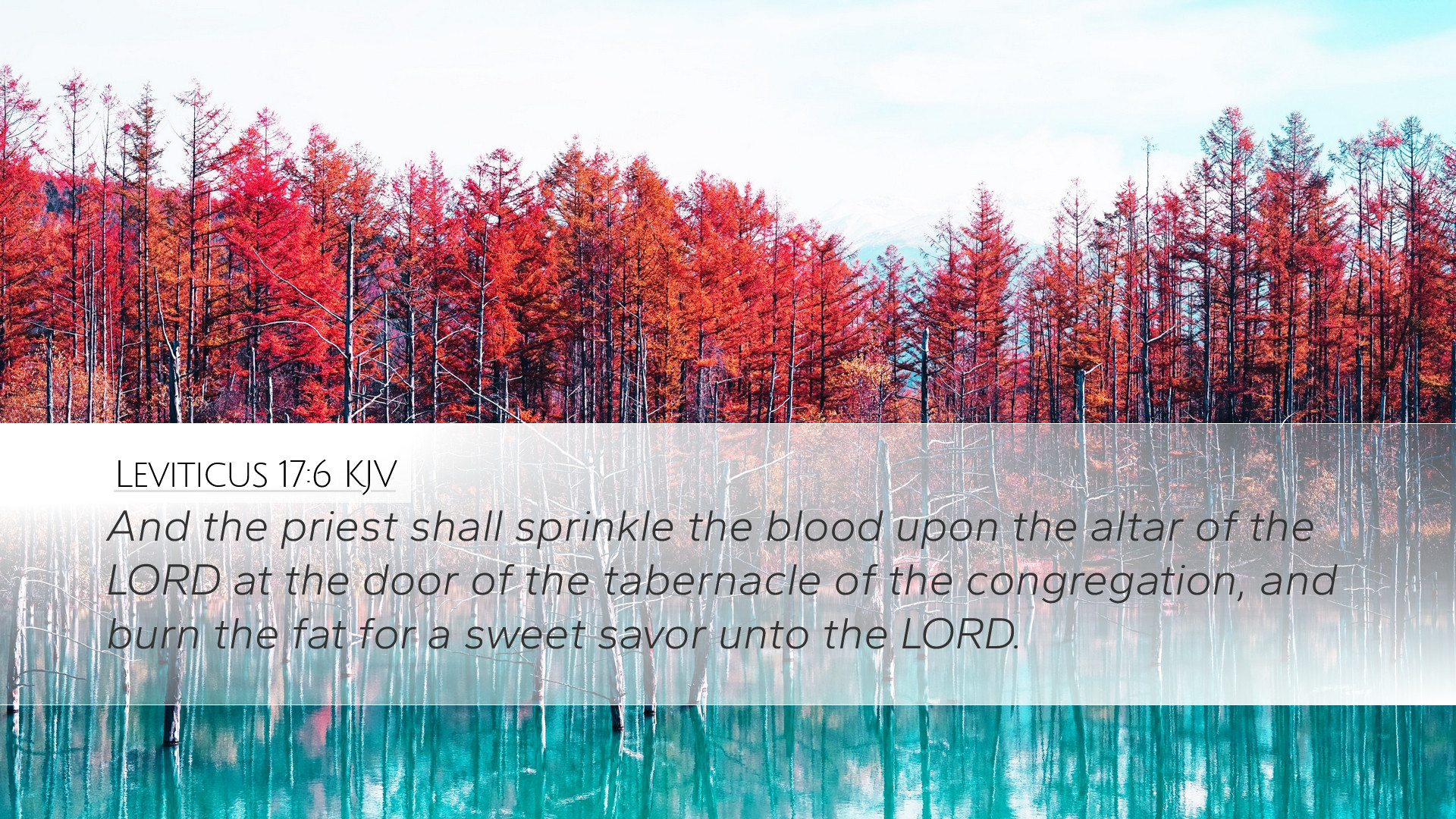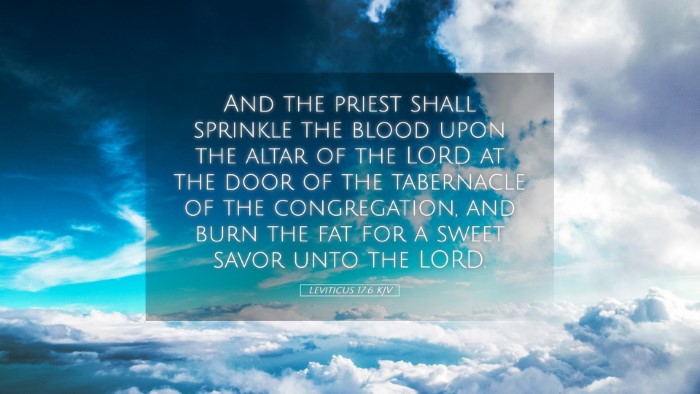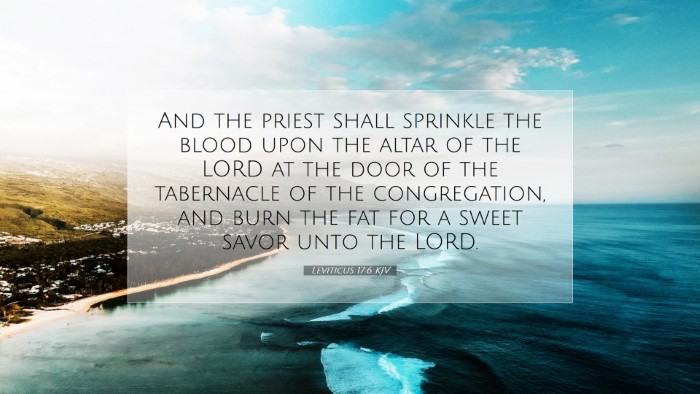Commentary on Leviticus 17:6
Leviticus 17:6 states, "And the priest shall sprinkle the blood upon the altar of the LORD at the door of the tabernacle of the congregation, and burn the fat for a sweet savour unto the LORD." This verse plays a significant role in understanding the sacrificial system in ancient Israel, as well as the symbolic meaning behind these practices.
Contextual Overview
This chapter emphasizes the sanctity of blood and the importance of the sacrificial rituals. It serves to instruct the Israelites on how they are to approach God through sacrifices, highlighting the priest’s role in mediating through the offering of blood, which signifies atonement and communion with God.
Insights from Public Domain Commentaries
Matthew Henry's Commentary
Matthew Henry comments on the overarching theme of atonement represented through blood in Leviticus. He notes that this requirement underscores God's holiness and the necessity for a mediator— the priest— in the sacrificial system. The act of sprinkling blood on the altar signifies life being returned to God, as blood represents the life of the flesh. The altar becomes a meeting place between God and His people, and thus, the importance of the priest's ceremonial duties cannot be overstated.
Albert Barnes' Notes on the Bible
Barnes elaborates on the symbolism of blood in the sacrificial system, emphasizing that the altar is where the acceptance of the sacrifice occurs. He explains that the act of sprinkling blood demonstrates not merely the ritualistic observance but the deep significance of God's forgiveness and grace extended to the people. The phrase "sweet savour unto the LORD" indicates that the offering is pleasing to God when made in sincerity and obedience. The underlying message is one of grace, reflecting God’s mercy in accepting these sacrifices as means for reconciling humanity.
Adam Clarke's Commentary
Adam Clarke discusses the theological implications of this practice, stressing the necessity of the priest's involvement in the sacrificial system. He mentions that the blood represents life, echoing the idea presented in Leviticus 17:11, which states that the life of the flesh is in the blood. Clarke also notes that the specifications of the sacrificial acts reinforce the sanctity of worship; the people must not only bring their offerings but must also engage in the proper rituals prescribed by God to ensure their acceptance. This indicates the seriousness with which the Israelites were to regard their covenant relationship with the Lord.
Theological Implications
From these commentaries, several theological themes emerge:
- The Importance of Atonement: The sprinkling of blood signifies atonement, an essential concept in biblical theology, illustrating how sin separates humanity from God and how blood serves as a means of reconciliation.
- The Role of the Priest: The priest acts as a mediator between the people and God, reflecting the New Testament theme of Christ as the ultimate High Priest who offers Himself as a sacrifice.
- Obedience in Worship: The requirement that sacrifices be made in accordance with God's directives highlights the value God places on obedience and the manner in which His people approach Him.
- God's Holiness: The call for blood to be used in atonement reveals God's holiness and justice, which cannot overlook sin. This concept is vital for understanding the nature of God's relationship with humanity.
Practical Application for Pastoral Ministry
Church leaders today can draw substantial lessons from Leviticus 17:6:
- Teaching About Sacrifice: Pastors can emphasize the importance of personal and communal sacrifice in worship, encouraging believers to present their lives as living sacrifices, holy and pleasing to God (Romans 12:1).
- Understanding Atonement: Preaching on the significance of Christ’s sacrifice encourages believers to grasp the depth of their salvation, fostering gratitude and commitment in their walk with Christ.
- Encouraging Holiness in Worship: Leaders should guide congregations towards a deeper reverence for God in worship, ensuring that worship practices align with biblical standards.
- Facilitating a Mediating Role: Pastors and church leaders can emulate the priestly role by serving as mediators in the community, standing in the gap through prayer and advocacy for their congregants.
Conclusion
Leviticus 17:6 encapsulates profound truths regarding atonement, worship, and God’s redemptive purposes. It highlights the relevance of the sacrificial system as a foreshadowing of Christ’s ultimate sacrifice. The insights derived from the commentaries of notable scholars like Matthew Henry, Albert Barnes, and Adam Clarke provide depth and richness to our understanding of this verse, serving as a foundation for both theological study and practical ministry.


